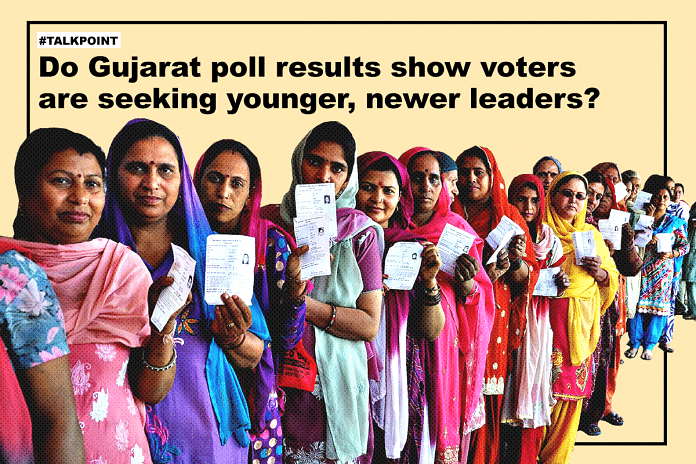ThePrint asks:
Do Gujarat poll results show voters are seeking younger, newer leaders?
The question of whether age matters in politics is being debated as some young faces were elected to the Gujarat assembly while some veterans lost their seats recently.
For Indian voters what matters most is the party of the candidate and not their personal qualities. In such a situation, it is extremely difficult to imagine that the age of the candidate would influence the voting choices of the people. At least I have not seen this trend in Indian elections till today.
Studies conducted by the CSDS over years indicate that for 65 per cent of Indian voters, party affiliation of the candidate is the most important consideration for voting. In other words, 65 per cent of Indian voters vote for the party and not for the candidate. There are still some for whom issues do matter, but mostly the qualities or qualifications of the candidates is what matters least.
Candidates are required to declare their assets and record of their criminal antecedents (if any) for the voters’ information. But voters do not even bother to look at this information the way they should be doing, even though this information is available in the public domain. So, it is not the candidate that really makes a difference in the Indian election. It is their party affiliation that carries weight.
Although this is the prevailing practice, but as an idea there is support for having young people in politics. Studies conducted by the CSDS indicate strong support among Indians for the idea of a retirement age for a politician and people’s preference for young people in politics.
But the two findings coming out form the studies also indicate there is a huge difference between the idea and practice. While as an idea, there is support for having more young people in politics, when it comes to practice the same voters don’t consider it important as a voting choice.
It is true that many young candidates have got elected to the present assembly in Gujarat, but that is not due to their age. It is only because they have been popular in their constituency as they led the movement for the larger cause of the people. It is only a matter of chance that they are also young.
Age is not yet a social cleavage in Indian politics, but it has begun to emerge in recent years, but very slowly.
Sanjay Kumar is a professor and director at CSDS






